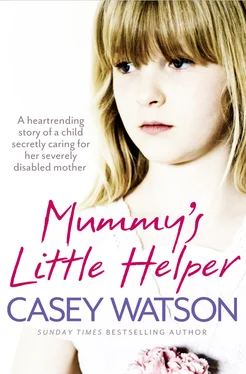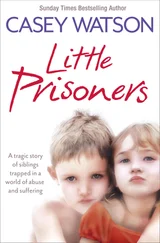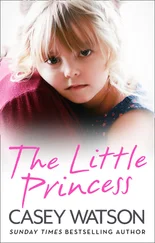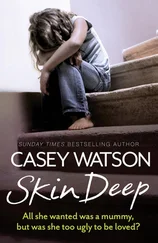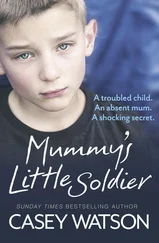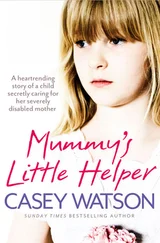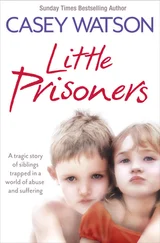We found one in the end, however, after a short bout of anxious circling, and I had just enough coins for the pay and display. I said as much to Abby, as I rummaged in my purse. ‘Next time,’ I said, almost as a mental note to self, ‘we must remember to bring enough change with us.’
I heard the zip on the backpack being opened once again. ‘I’ll make a new list for that,’ Abby reassured me.
I’m not sure what I had expected. Our stint of internet research had thrown up so many images, both mental and visual, that I realised I had no ready picture in my mind for Sarah, just a general expectation that she’d in some way ‘look’ ill.
But she didn’t. Yes, she looked as if some movements were causing her pain – I noticed her wince as she waved a hand to greet us, for example – but if you gave her a cursory glance, you’d never think her ‘ill’. The only evidence that there was something serious going on – though I didn’t know what – was that there was a mound under the blanket, where her legs were, which I presumed was the outline of some sort of cage or box, keeping the covers from touching her.
The ward the duty nurse had directed us to was a six-bedder, the last of several identical bays. There was only one other bed occupied in her section at present, it seemed: a sleeping middle-aged woman, the top of whose bedside cabinet was crammed with cards and flowers. It made the lack of either on Abby’s mum’s bed feel very stark and I cursed myself for not thinking to bring some.
Sarah, who looked to be in her early thirties, was quite well built, which gave her a healthy sort of glow, though I noticed that her hair, which was a caramel to Abby’s blonde, was lank and looked as though it hadn’t been washed for a while. She had the same eyes as Abby, greyish green and deep set, and as we drew nearer I could see dark circles beneath them. I tried to imagine what it must be like to be her – to be so ill that you were separated from your only child in this fashion. And worse, to know she was being cared for by strangers. How did that feel ? I really couldn’t imagine.
I put a broad smile on my face, conscious of her silent inspection. That at least wouldn’t set any alarm bells ringing, I didn’t think. Though I knew how to discipline children of any age and size (it had been my job for so many years now that I had long since perfected ‘the look’) I was not an intimidating-looking character. At just five foot nothing, and in sweatshirt and leggings, plus comfy boots, mine was not the kind of look that would alarm anyone. And though I had more that once been called an ‘old witch’ (due to my black hair – teenagers could be so imaginative) by the odd miscreant who’d fallen foul of me in my days working at the local comprehensive, where adults were concerned my problem was more usually of being under estimated.
‘Nice to meet you,’ I said, beginning to extend a hand but, unsure if she’d want to shake it, transferred it to the pocket in my jumper instead. I knew from our recent research that MS sufferers could have pain in their hands. I looked at the cage again. And their legs too, I guessed.
Abby had seen it too.
‘Mummy, what’s that?’ she asked, alarmed. ‘Why have you got a house on your leg?’
‘I broke my ankle, poppet,’ she explained. ‘When I fell. Didn’t they tell you that?’
Abby shook her head. ‘No, they didn’t,’ she said indignantly.
‘Compound fracture, unfortunately,’ Sarah said, now looking at me. ‘Hence all this. Never rains but it pours, eh?’
By now Abby had sped straight to the other side of the bed and placed a quick peck on her mother’s cheek. Now she grabbed her arm and began stroking it. It seemed an odd way to greet her – I’d have expected her to fling her arms around her. But then I realised that perhaps Sarah was in more pain than she was showing; the way Abby was so gentle and restrained in her movements made me wonder at a long-standing unspoken agreement that she had to be careful how she touched her, for fear of hurting her.
Abby seemed different – very matter-of-fact now she was with her mum, the two of them clearly slipping into long-established roles. While I exchanged pleasantries with Sarah – difficult to do in such circumstances but clearly something she was as keen to cling to as I was – Abby fussed around, plumping pillows and firing questions at her mother about when she’d been bed-bathed (she’d taken in what I’d said to her, clearly), what she’d eaten, whether she was all right for all her various medications, how she’d been sleeping and whether she had enough clothes. The notes she’d made in the car were ticked off as she did this, and I couldn’t help notice how clipped and precise her manner had become. It really was as if she’d morphed into a mini-professional carer. And, even more tellingly, how comfortable her mother seemed with this. I kept expecting Sarah to make her first enquiry about Abby’s day, but Abby had hardly paused to draw breath and, once again, Sarah seemed happy to let her continue.
‘Anyway,’ I finished, conscious that this was precious time for them to be together, ‘I’m going to go and grab myself a coffee and leave you two to it.’
This seemed to galvanise Sarah. ‘Poppet,’ she said to Abby, who was now busy rootling in the bedside cabinet for a comb. ‘Up at the end of the ward – ask the nurse; she’ll direct you – there’s a little library of books. Do you want to choose one for us to read?’
Abby popped her head up, and nodded. ‘What kind?’ she asked.
‘Oh, you choose,’ said Sarah. ‘You know what we like.’
Abby nodded again, and trotted back down the ward.
Sarah turned to me. She had clearly been anxious that we speak alone. ‘Look,’ she said, as Abby disappeared from the bay, ‘I know what you’re probably thinking.’
‘I’m not –’ I began helplessly.
‘How it looks ,’ she went on, as if I should have known. ‘I know, because the social worker’s told me. But you must understand –’ She really emphasised the ‘must’. She looked at me earnestly. ‘That, well, it’s not what it must look like. She’s honestly fine. Really . I don’t think they quite get it …’ She paused, and formed her mouth into a thin smile. ‘There is no one. There is really no one . So I have had to be single minded. Do you understand?’ Her eyes seemed to be willing me to say yes. Even though I wasn’t sure quite what I was supposed to be understanding.
‘I like to think I do …’ I began again. ‘I obviously have no personal experience of your situation, but –’
‘It was always just so important that I made her independent.’
‘She’s certainly that,’ I agreed, wondering whether to say any more. ‘Though –’
Sarah’s eyes flashed and I sensed I was on tricky ground here. ‘She’s very capable,’ I went on. ‘I can see that. Though she does seem, well, a little over-anxious, understandably. Which is why they asked Mike and I …’
‘But that’s exactly what I mean ,’ Sarah said. This conversation was becoming more confusing by the minute. If she had a point to make, it was a long time coming. ‘I’ve had to make her that way, for just this eventuality,’ she said. ‘I’ve relapsed before.’ She sighed heavily. ‘And once I’m over this, I don’t doubt, at some point, that I’ll relapse again. This is a bitch of a disease. You never know when it’s going to get you. And it’s always been my number one priority to be sure Abby can look after herself.’ She paused, and I could see she was becoming upset now. ‘The absolute last thing I ever wanted was to be a burden to Abby. It’s just us, you see …’ The wry smile flashed back. ‘Me and her against the world. What with her having no dad …’
Читать дальше
